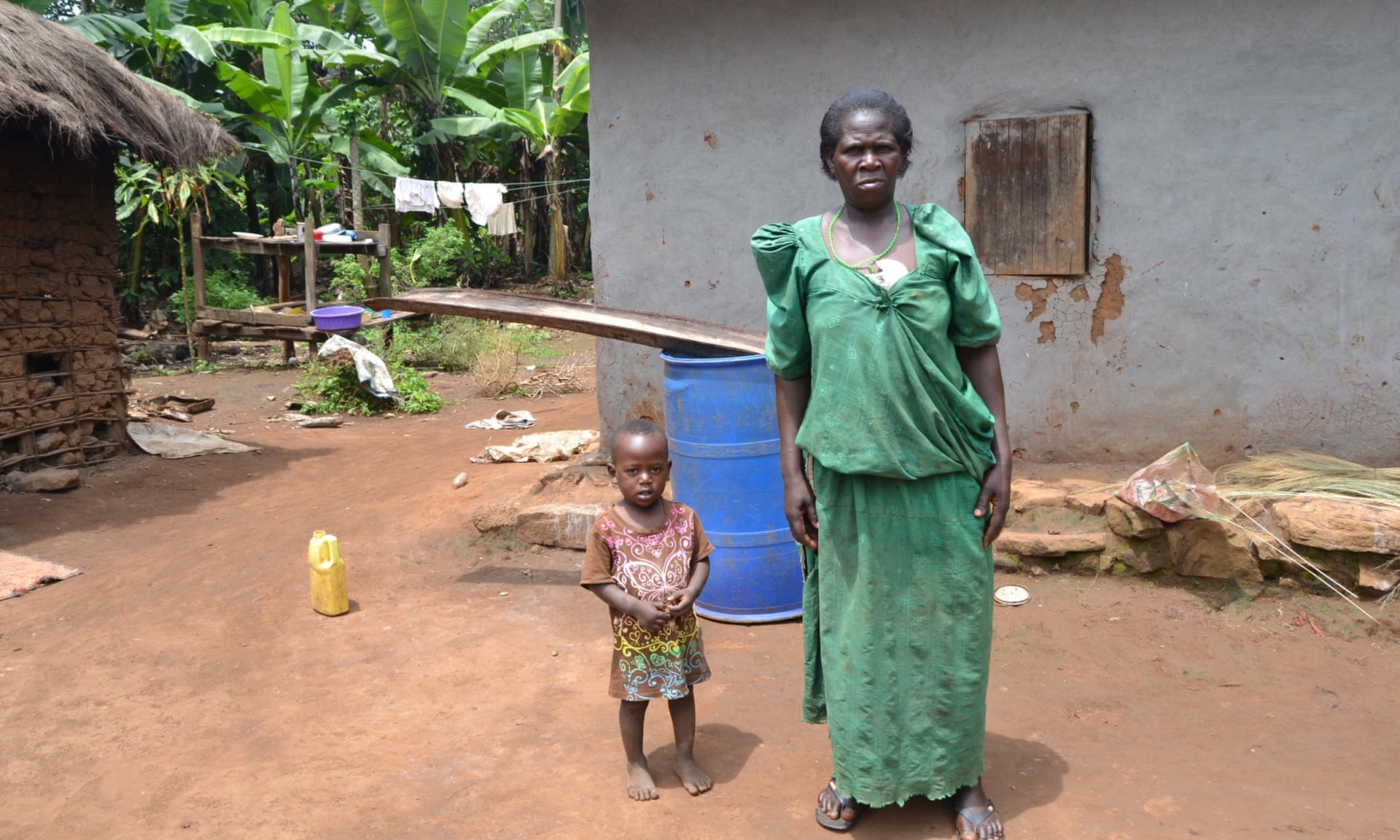
Mangdelena Nakamya, once a proud farmer, now lives on church land
Mariam Nakteeko, Rose Nantume, and Magdalenea Nakamya grew up on Bugala Island, in Kalangala District, on Lake Victoria, Uganda. They farmed, tended to their families, prepared for the future, and supported their community of farmers and fisherfolk. They lived on land that had been family land for generations. That was until two giants – Wilmar International and Bidco Africa – decided to turn the island’s diverse environment into a monoculture palm oil plantation.
Kenya-based Bidco Africa boasts, “We exist to serve daily consumer needs to enhance Happy Healthy Living by Branding, Transforming and Distributing the goodness of Mother Nature.” Singaporean-based Wilmar promises, “Wilmar remains a firm advocate of sustainable growth and is committed to its role as a responsible corporate citizen.” What could go wrong?
Everything. Ask the women.
From its 2005 launch, the project has reeked of corruption, refusal to consult, and the ordinary violence that accompanies mass dislocation. In 2009, local residents and environmental activists documented widespread illegal forest clearing and use of fertilizers. Beatrice Anywar, then-shadow environment minister, explained, ”We are replacing natural forests with palm trees and this is bad for our country. But this goes on because the investors have the backing of the president. They don’t listen. We should begin listening to scientists because we are already witnessing floods and severe droughts.” The president himself agreed, “I invited the investors to start this project here, though some people wanted to block it because they wanted to protect butterflies instead of development. But butterflies can go and live elsewhere.”
Butterflies can go and live somewhere else. So can people, apparently.
In July 2011, 64-year-old farmer Magdalena Nakamya owned and farmed seven acres. One morning, four years ago almost to the day, Magdalena Nakamya awoke to find “yellow machines” turning up her land and razing her crops: “No one came to talk to me before they destroyed my crops. I heard that some people were given money, but I didn’t receive anything.” In February 2015, she joined a hundred other local displaced farmers in a lawsuit for restitution and compensation. The farmers talk of land and money, but when you look into their eyes, the struggle is the restoration of their dignity.
Rose Nantume’s family farmed 40 acres. She was saving to build a new home, and had already laid the foundation when the bulldozers came and took everything away. Now her family of ten live in a two-room shack: “Bidco took our land but paid nothing at all. The situation we’re in is so bad. Our house is in a bad condition and our children cannot study because there’s no money. We thought the money from our gardens would help us but ever since the land was taken, our situation is very difficult.”
Mariam Nakteeko explains what happens when the men are forced to leave: “Our husbands had to leave us to find work elsewhere. After we lost our land, we have nothing, not even enough food.”
Kalangala farmers are working with the National Association of Professional Environementalists, NAPE, and Friends of the Earth – Uganda, to reclaim their land, lives and dignity.
Meanwhile, Wilmar claims everything is fine, no one was coerced into taking money, and no one was evicted. How could they have been when Wilmar has had a clear No Deforestation, No Peat, No Exploitation Policy since 2013? Surely, they say, these women are delusional, except they don’t even say that. Why would they? It’s just smallholder women farmers on some island in the middle of Lake Victoria, and hey, they got a ferry out of the deal.
(Photo Credit: Alon Mwesigwa / The Guardian) (Video Credit: YouTube / Nape Uganda)
